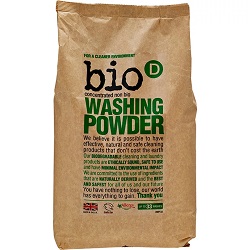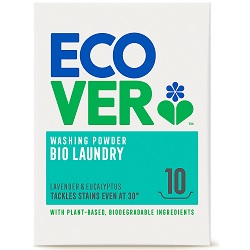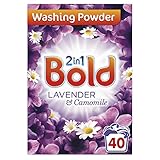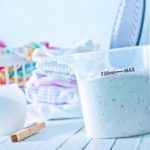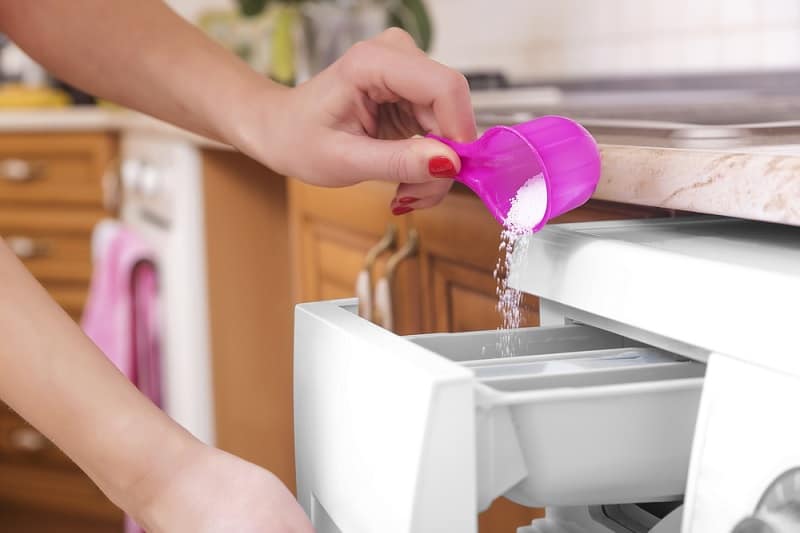When it comes to everyday life, especially everyday family life, hygiene is vital. Cleanliness is next to godliness after all!
You can purchase the most all-singing, all-dancing washing machine in the world, but if you don’t choose the right washing powder to go in it, you’re wasting your cash.
For that reason, you need to know which the best washing powders on the market are, and which suit your budget the most.
Luckily for you, we are going to review a few of the best and most popular washing powders on the market in the UK. Read on to find out which one is best for you and your needs.
Best Washing Powders in the UK
1. Daz Regular Washing Powder
Washing powder type: Biological
Fragrance? Mild scent
Who hasn’t heard of Daz? Daz has been around since 1953, making it one of the oldest washing powder brands on the market today. Their washing powder is still extremely popular due to its effectiveness and value for money (especially if you buy it in a large box).
This particular washing powder is ideal for removing tough stains and whitening whites, and that makes it a good choice for families with young children (or clumsy adults). If you purchase this box, you get good value for money, with around 90 washes in a 6.3 kg pack.
This is a bio washing powder, so it’s probably not a good choice if you have sensitive skin. It’s also worth noting that the pack doesn’t come with a measuring scoop.
2. Surf Washing Powder Tropical Lily & Ylang Ylang
Washing powder type: Biological
Fragrance included? Tropical lily and ylang-ylang
This option from Surf has a delicious scent of lily and ylang-ylang (an essential oil that comes from the flowers of the ylang-ylang tree).
This is one of the best-smelling washing powders on this list, though since it’s biological and scented it’s not a good choice for those with sensitive skin. Also, some people find the smell to be a bit too strong and chemical-like.
This powder is ideal for all fabrics, except wool and silk. It’s designed to work well even at temperatures as low as 15 degrees Celsius. Surf Washing Powder Tropical Lily & Ylang Ylang can be bought in a large 120-wash box, which offers great value for money.
3. Ariel Professional Washing Powder
Washing powder type: Biological
Fragrance included? Lightly scented
Ariel is another of the biggest brands on the market, and one which is perfect for removing stains. This washing powder is available in several different sized packs, including the linked 9.1 kg pack which offers a whopping 140 washes.
Ariel Professional is designed to be tougher than the average washing powder, making it a good choice for stains and for keeping whites white.
You also don’t need to wash at a high temperature to get rid of any potential stains, as it is effective at just 30 degrees.
Overall, peace of mind and performance is high with this choice.
4. Persil Non-Bio Washing Powder
Washing powder type: Non-biological
Fragrance? Lightly scented
Persil is probably the best-known brand of non-bio washing powder in the UK. This powder detergent offers great value for money and is a reliable choice if you or your family have sensitive skin.
It’s dermatologically tested, so you can rely on it to be kind to your skin. It’s also scent-free, so it’s a good choice if you react badly to washing products with strong fragrances.
You can buy this washing powder in a “Family Pack”, which weighs 8.4 kg and offers 120 washes. Persil Non-Bio is designed to remove all kinds of stains, making it a great choice for families with young kids! It also works well on quick wash cycles, so it’s great for freshening up clothes quickly.
Like most large packs of washing powder, this product doesn’t come with a measuring scoop.
5. Bio-D Non-Bio Concentrated Washing Powder
Washing powder type: Non-biological
Fragrance: Fragrance-free
If you’re looking for a more natural and eco-friendly choice, Bio-D’s washing powder could be a good option.
It’s biodegradable and comes in 100% recyclable packaging. However, the bag is lined with plastic rather than being pure paper. Some buyers also found that the bag split during transit, though this doesn’t seem to happen very often.
It uses exclusively naturally derived ingredients and is made in the UK, so its carbon footprint is low.
Bio-D’s washing powder is also approved by both the Cruelty Free Society and the Vegan Society, so you can rest assured that no animals were hurt in the process of testing and producing it.
This washing powder is an excellent option for those with sensitive skin or eczema, as it’s free from enzymes and perfumes that could irritate your skin.
It has the Allergy UK Seal of Approval, which means they have been independently tested and approved by Allergy Research Ltd. to ensure they are safe for sensitive skin.
6. Ecover Bio Washing Powder
Washing powder type: Biological
Fragrance: Lavender and Eucalyptus
As you’d expect from Ecover, this product is an eco-friendly choice, being completely biodegradable and made exclusively from plant- and mineral-based ingredients.
According to Ecover, the ingredients used will also have a minimum impact on aquatic life.
It’s designed to remove stains even at 30°C, and most people find it does a good job at this. However, you might need several washes or extra stain removal methods to get rid of really stubborn stains.
Despite it being a scented biological washing powder, it’s unlikely to irritate your skin like harsher, more chemical-laden washing powders.
The lavender and eucalyptus scent is pleasant but not overpowering.
One downside to this product is that it’s relatively expensive, and you only get 10 washes from the pack shown.
7. Bold 2-in-1 Washing Powder with a Touch of Lenor
Washing powder type: Biological
Fragrance? Lavender and camomile
If you want something more than just a basic washing powder, Bold 2-in-1 is a good choice. It combines washing powder with fabric softener and has a lovely lavender and camomile scent, so you’ll get clean, soft and nice-smelling clothes.
This washing powder is very effective and leaves clothes, towels and bed linen feeling great, with a pleasant Lenor lavender and camomile scent which is great for bedding, since lavender is calming and can aid better sleep.
This is a bio washing powder, so it should be avoided if you or someone in your family has sensitive skin. Some people can also have an adverse reaction to the fragrance used.
How to Choose Washing Powder
Now you know all about the major brand and supermarket brand washing powders on the market, you might have a few questions which have been thrown up by some of the words we have used. For instance, what is the difference between biological and non-biological?
Bio vs non-bio washing powder
Basically, biological (bio) washing powders contain enzymes which are great for stain removal. Non-biological (non-bio) do not contain these enzymes, so whilst they are better for the skin, e.g. sensitivities, they aren’t as effective at removing stains.
This is something you need to weigh up and consider. It depends on your family and yourself, and whether you have any severe skin sensitivities, or if you are particularly prone to irritation. If you are, it’s best to go with a non-bio option. See the best washing powders for sensitive skin here.
If however, you don’t have any such issues, then a biological wash powder is always going to be a higher performance beast for you, and one which you can use on lower temperatures, which cuts down on the chances of shrinkage or damage as well as cutting down on your household bills.
Specialist washing powders
In addition to the basic bio and non-bio options, there are also specific washing powders for coloured items, e.g. to protect the shade and specific powders for sensitive fabrics such as wool or silk.
Pack size
A regular washing powder pack is around the 2.4 kg size, which should last for anything from 22 to 40 washes maximum. You can purchase economy packs, which are larger and cost a little more, but if you have a large family, this could save you money in the long-run.
Washing powder vs liquids and gels
Aside from washing powders, there are liquids and gels, as well as capsules to choose from, but this totally depends on your washing machine and your personal preference as to whether you use them.
Capsules are great for speed and ease as there is no mess or measuring involved. You just pop your capsule/tablet into the drum with your laundry and start the cycle as you normally would.
When using liquids or gels, you have to measure out the correct dosage for your wash load, which could result in spillage or even overdosing your laundry with detergent.
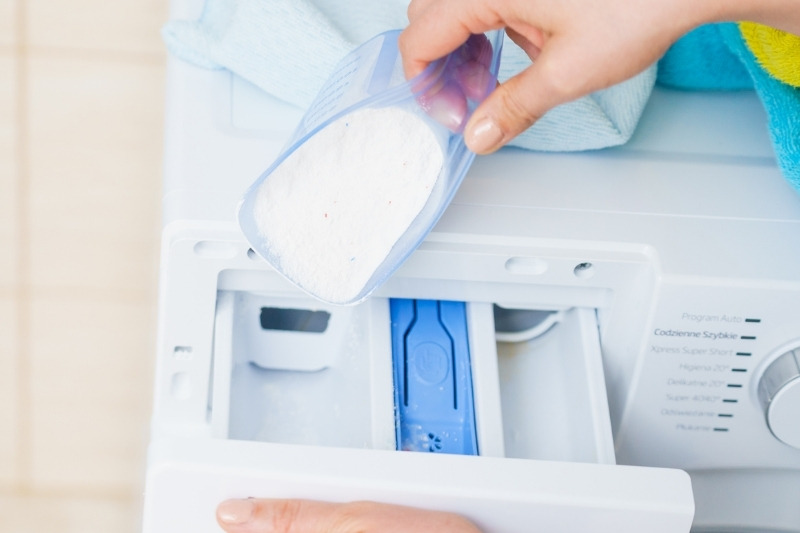
How Much Washing Powder to Use
Most of us use our washing machines several times a week or more, but how many of us are confident that we’re using the correct amount of washing powder each time we do our laundry?
If there’s not enough powder then the clothes won’t be cleaned well enough and won’t smell as fresh. But using too much powder can cause problems too, such as powdery residue and suds left on clothes, or garments left feeling too stiff.
Too much powder can also block the filter on the washing machine and increase wear and tear on your appliance.
Trying to work out exactly the right amount of powder to use might seem confusing, but if we follow some basic advice we can get it right each time and get the best possible cleaning results.
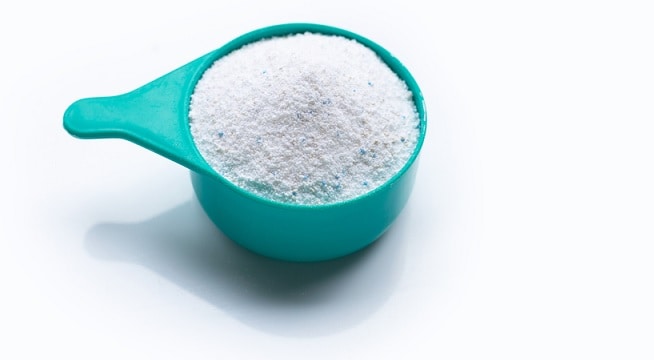
Don’t guess the amount of powder!
Many of us are in a hurry these days and might try to estimate the amount of powder detergent we need in each wash, but ignoring the guidelines on the washing powder packaging is a big mistake. It’s almost impossible to judge how much powder you’ve added just by sight!
Most manufacturers offer free dosing devices for powder or washing liquid, so it’s worth sending off for one and using it each time you do use your washing machine.
Some brands, such as Persil, include a dosing device in each pack. Ask your friends or family if they have any spares knocking around that you could have.
Check the instructions for the dosing device, as some simply measure the amount of detergent, which you then need to add into your machine dispenser drawer, and others can be added directly inside the washing machine drum.
If you really struggle to find time to measure your detergent, you could always consider buying washing powder tablets or pods.
How many clothes are you washing and how dirty are they?
It makes sense that dirtier clothes will need more detergent, to remove the extra dirt and stains.
According to Persil, a standard load of laundry needs around 110 ml of powdered detergent, but heavily soiled clothes may need an extra 100-210 ml.
For any brand of detergent, a good guideline when washing heavily stained clothes is to fill the dosing device to the next line up from usual.
You should also consider the amount of clothes you’re washing in each load. Manufacturers might refer to a normal or large load in their dosing instructions.
An average-sized or normal load weighs around seven pounds and will fill three-quarters of an average-sized washing machine drum. If you’re adding more clothes than this, you may need a little extra detergent.
As a general rule, if you can’t fit your hand vertically between the top of the drum and the laundry, your machine is overloaded.
This can result in the clothes soaking up all the water, preventing the detergent from dissolving properly.
It’s also worth remembering that if you’re doing a half-load of laundry, you need to use half the amount of powder than normal.
Even if your laundry is dirtier than usual or you’re doing a larger wash, don’t get tempted to add too much powder. It’s better to pre-soak dirty items than to use too much detergent in the main wash.
Water hardness
The UK is mostly made up of limestone and chalk which causes hard water, and around 60% of homes in England and Wales have a hard water supply.
Washing powder doesn’t work as effectively in hard water areas because less lather is produced to clean the clothes properly.
It’s a good idea to check the water hardness level for your area by looking online (see this map) or contacting your water provider, then follow the correct measurement guidelines on the detergent packaging.
It’s likely you’ll need to use a bit of extra washing powder to get your clothes clean if you live in a hard water area, and slightly less in soft water areas.
Is Washing Liquid Better than Powder?
There’s never been a bigger choice of laundry detergents on the market than there is now, and the main decision for many of us is whether to use washing powder or liquid.
Washing powder was first produced over 60 years ago, so it’s a traditional and well-tested product. Liquid detergents have become widely available in recent years, and there are many varieties to choose from, but are they an improvement on traditional powder?
We discuss the pros and cons of both types of detergents below.
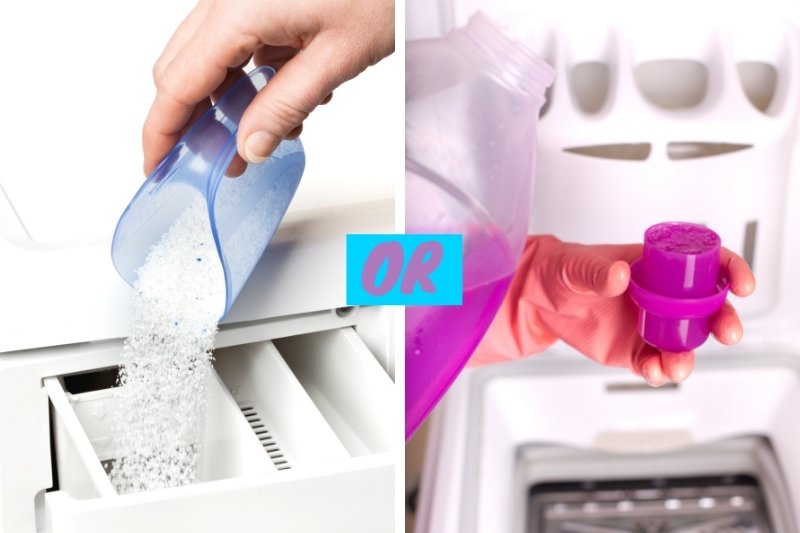
Washing powder – Pros and cons
Pros
- Cheaper: Washing powder is usually much more economical than liquid detergents. This can be a big factor for large families who do a lot of laundry per week.
- More eco-friendly: Washing powder is usually packed in eco-friendly, recyclable cardboard boxes, making it the best choice for those who care about their plastic consumption.
- Better at cleaning stains: Many studies show that powders clean more effectively than liquids because they can contain cleaning ingredients such as non-chlorine bleach, which can’t be put into liquid detergents successfully. Powders are particularly good at cleaning stains such as blood and soil.
- Longer shelf life: Washing powders tend to have a longer shelf life than liquid detergents due to better stability of the surfactants found in the powder.
Cons
- Leaves reside: One of the cons of washing powder is that the powder doesn’t always break down fully, leaving a residue on laundry and inside the washing machine.
- Less suitable for cold washing: Washing powders tend to dissolve better in warmer water, and may not be suitable for cold washing cycles – although this was more of a problem with powders in the past, with most modern powders being suitable for lower temperature washes.
- Contain more chemicals: Washing powders tend to contain more chemicals, and some ingredients such as sodium sulphate can destroy septic systems.
- Could damage clothes: There has been some discussion as to whether washing powders can damage clothes more easily than liquids because they contain more chemicals and can be more abrasive. This hasn’t been proven, and the wear and tear of clothes are more likely to be caused by the agitation of clothes in the washing machine. However, some people prefer to use liquid washing detergent for more delicate clothing to be safe.
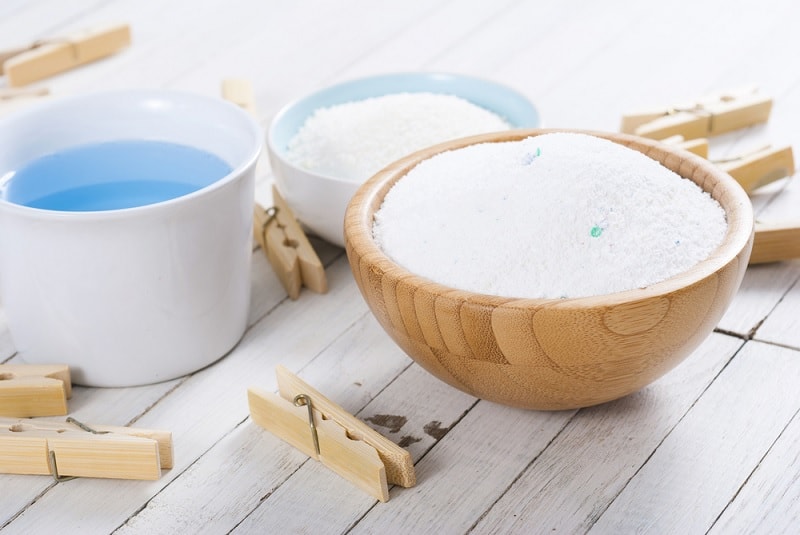
Laundry liquid – Pros and cons
Pros
- Pre-treating stains: One of the benefits of laundry liquid is that you can pour some liquid directly onto stains to treat them before the wash.
- No residue: Also, as the detergent is already dissolved, there’s no risk of residue being left on clothing or your washing machine.
- Effective at low temperatures: Liquid detergents can be used for washing at low temperatures as the detergent is already dissolved, so they’re excellent for washing delicate items.
- Good for coloured clothes: They’re also great at keeping coloured clothes bright and vibrant, as they don’t contain any bleach.
Cons
- Poor at stain removal: One of the biggest drawbacks of washing liquids is their poor performance on stains such as blood, grass and mud.
- More expensive: They’re also usually much more expensive than powders, so they’re not an economical option for households who do a lot of laundry loads per week.
- Less eco-friendly: Washing liquids tend to come in plastic packaging, and not all parts can be recycled, so they’re not an eco-friendly option.
As discussed, there are pros and cons to both washing powder and washing liquids.
Powder detergent is definitely the best option for value and stain removal, but liquids can be kinder to delicate clothes and appliances.
For these reasons, some people choose to keep both washing powder and washing detergent in their homes, to suit different laundry requirements.
Conclusion
If we had to pick just one washing powder to recommend to most people, it would be Daz Regular Washing Powder. It offers good value for money, has a pleasant scent and is very effective at removing dirt and stains.
However, it’s not ideal if you have sensitive skin or eczema. See our guide to the best washing powders from sensitive skin if you find most washing powders irritate your skin.

In The Wash is your guide to the best laundry and cleaning products, tips and tricks. Our mission is to solve the UK’s cleaning and laundry dilemmas!




